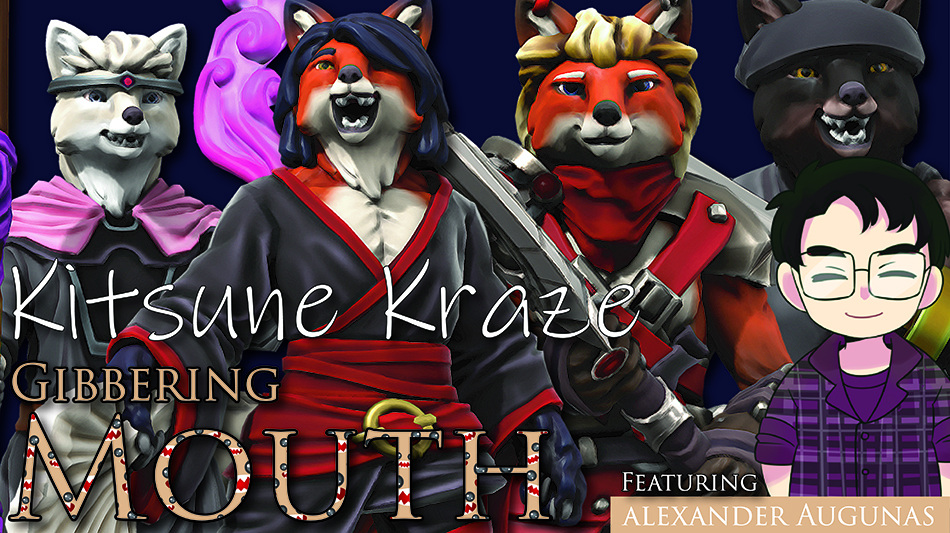Welcome to Guidance, Private Sanctuary’s source for tips and techniques for the Pathfinder Roleplaying Game, written by Everyman Gamer Alexander Augunas. Today, we’re going to be talking about etiquette on online forums.
Come on, viewers. Let’s sit down and have a talk.
No, none of you are in trouble. But seriously, folks, none of you should skip this article. Over the past two years or so, I’ve noticed a trend towards toxicity in our (Pathfinder/Paizo) community. This is not a good thing. So today, we’re going to have a brief talk about forum etiquette.
Forum Etiquette
Forum etiquette is how you communicate with others and present yourself to others online. It is a very important part of socializing via the Internet and it can be surprisingly difficult. There are several reasons that forum etiquette is difficult. Let’s browse over them quickly.
- No Body Language: Body language is key in communication, especially facial expressions. Most people wear their emotions on their sleeves, making it easier to tell how someone is feeling. For example, frustration shows on someone’s face, so if someone is frustrated with your rules design you’ll pick up on that and be a little more empathetic. Without body language, many of those subtle cues are lost, leaving people to determine for themselves how you are reacting to the conversation because you can’t visually broadcast that information yourself.
- No Tone: This goes along the same lines as no body language. Your tone allows you to convey the context of whatever it is you are saying. For example, you can tell when a person is trying to be sarcastic or trying to tell a joke. Tone helps put the conversation into context, and as with a lack of body language, the lack of tone puts the question of context in the hands of the reader, which is usually a bad thing.
- Time to Think: I don’t know about you, but I am at least 66% funnier and wittier in writing than in person. That’s because I have time to think about and formulate my responses. I can come up with clever quips that I would have never been able to dream up in person. That extra time to think can actually works against you when you are trying to converse online. Often you’ll come up with something that is extra biting to the reader, much worse than what you would have normally said.
Keeping Good Etiquette
Because of the factors listed above, many people end up insulting others or coming off as outright antagonistic without intending to do so. Real-world etiquette has unspoken rules about conduct and as a result, so does online etiquette. But the humorous bit is that most people don’t really pick up on online etiquette because, unlike real-world etiquette, what you say is just as important as how you say it.
- Drop the Metaphors: Every single person you meet online is Draxx the Destroyer, from Guardians of the Galaxy. Metaphors do not transfer well online, so drop the comparisons. Chances are that your reader will take your metaphors offensively.
- Keep it Short: When you are talking in a forum, the longer your post is, the less likely someone is to read it. This is somewhat less true in a blog, where people have the expectation of reading a rather large collection of thoughts (thanks everyone for reading, by the way!). That said, in a discussion board people typically gloss over anything that is more than two paragraphs long, so learn to say only the most important details. That is, unless your conversation specifically calls for a longer post. For example, if someone wants a build for a gunslinger, then the expectation is that the responses are going to be somewhat long. Keep it short within context.
- Avoid Generalizations: In writing, a generalization is any statement that tries to apply itself to all areas of a specific topic. For example, “Everyone thinks that this feat is terrible,” is a generalization. The reason you want to avoid generalizations is that A) it makes you look uneducated and uninformed and B) the moment someone disagrees with you, whatever you’re saying collapses. Instead, use “I” statements. “I think that this feat is terrible because …,” is more likely to generate positive discussion as opposed to the former example.
- Lean Towards Positivity: In the above statement, even “I think that this feat is terrible,” isn’t a great way to participate in a discussion because you’re being unnecessarily negative. There are plenty of similes for “terrible” that express a less severe level of bad. You are more likely to find sympathy and positive discussion if you use the least severe / extreme form of your statement. For example, change our last statement to, “I think that this feat a poor option ,” or “I think that this feat isn’t worth selecting,” are both less harsh than the word “terrible.” People are more likely to discuss your opinion with you when you are less negative because people correlate negativity to hostility. Even if you want to discuss something, being negative is going to make people think that you are just going to verbally attack them when they express a different opinion than you, and few people want to deal with that. Almost everyone reading a forum is doing so on his or her own time. Most people deal with negativity and hostility all day at work and they don’t want to do so on their own time.
- Acknowledge Your Opinion: Saying that you are right and that everyone is wrong is a poor idea in public. Why would you do it online? Acknowledge that what you are saying is a personal opinion and keep an open mind towards others’ points. That is the heart of discussion. You in no way have to agree with what everyone says, but you must at least respect everyone’s right to having an opinion.
- Put Your Post Through the “Lover” Test: As mentioned, you have the power to check your words before they leave your IP address when posting online. Before you click “send,” stop and look at your post. Imagine yourself standing in person before someone you loved and saying that exact same post to that person in the harshest way possible with perfect context. How would that person react to you? Without body language or tone, people tend to take whatever they read from other people in the most negative context possible, even if you didn’t mean it in that way. If you would honestly say that post to your mother, click send. But if you wouldn’t or would get in serious trouble for it, then maybe it would be best to revise your thoughts.
- Don’t Start the Fire: If you went outside and set a pile of leaves on fire, would you curse the fire when your house started to burn too? Don’t forget about cause and effect when you are online. If someone is replying in a hostile way towards you, then chances are that you did not follow one of the etiquette rules listed above and are now on the receiving end of their negativity. Is it right for other people to break these rules because you did? Of course not. But you are responsible for your own behavior and if you acted in a manner that was rude, hostile, or negative, well, what did you expect? It is equally your fault.
And that’s all I have to say about online etiquette for now. What do you think? What constitutes proper online etiquette to you? Leave your answers and comments below and I’ll talk to you next week for another exciting session of gibbering! Take care.
Alexander “Alex” Augunas has been playing roleplaying games since 2007, which isn’t nearly as long as 90% of his colleagues. Alexander is an active freelancer for the Pathfinder Roleplaying Game and is best known as the author of the Pact Magic Unbound series by Radiance House. Alex is the owner of Everyman Gaming, LLC and is often stylized as the Everyman Gamer in honor of Guidance’s original home. Alex’s favorite color is blue, his favorite Pathfinder Race/Class combination is kitsune antagonist, and he has perfect online etiquette. EVERY. SINGLE. TIME. (No he doesn’t.)






Very well said, a well considered article all around. I’m certainly guilty of a couple of points, something to think about whenever I next reply to something
I know I’m guilty of certain points, and probably guilty of others without realizing it. I know one that I break on a regular basis is the size of my posts; I make long posts all the time.
*Humerous Statement* It might not be a bad idea to draw from HK-47 from the Star Wars:KOTOR series in prefacing comments with the intended emotion.
Fairly certain I failed on multiple fronts in that Slashing Grace thread. 😛
It happens. Look what happened when I intervened. The tone improved, but even I couldn’t get them to take their “OMG REDESIGN EVERYTHING!” mentality out of the Slashing Grace thread and into the Homebrew Forums. Sometimes people need blunt honesty, but that usually causes hostility. That’s life, however!
Is this article a prelude to a new forum? I would like to practice my forum etiquette!
Its not a prelude to anything. I just got tired of seeing toxic behavior on various web forums. Although whenever the new Know Direction forums goes live, behaviors like these would CERTAINLY be a good thing to practice!